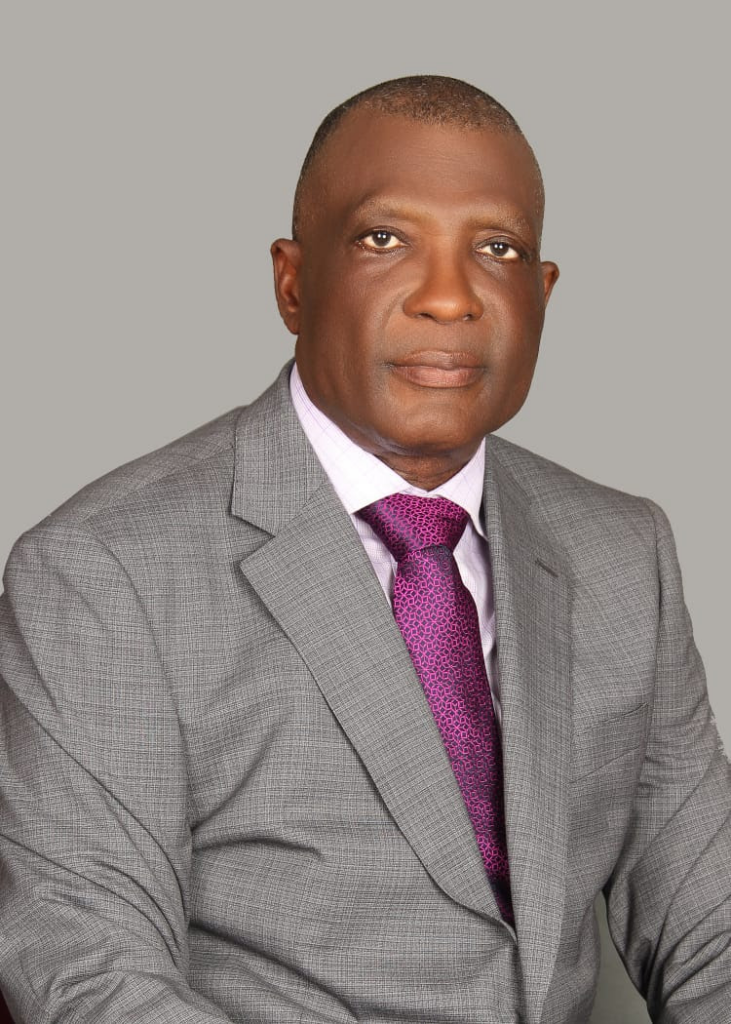- Neither of Indonesia’s presidential candidates has articulated a strong position on boosting sustainable management of the country’s fisheries or empowering small-scale fishermen, activists say.
- The incumbent, Joko Widodo, has rolled out policies aimed at cracking down on illegal fishing by foreign vessels, but has fallen short on measures to empower local fishermen, according to the critics.
- His rival, Prabowo Subianto, has framed his fisheries policy in the context of resource nationalism, while his proposed programs to support fishing communities are a rehash of what’s already being done.
- Fishing communities also face threats to their livelihoods from coastal development projects for land reclamation, mining, and tourism.
JAKARTA — Marine conservationists in Indonesia say neither of the two candidates running in this year’s presidential election has shown any real commitment to boosting the sustainability of one of the world’s largest ocean fisheries.
President Joko Widodo is seeking re-election in next month’s vote after coming to office in 2014 on a promise to fulfill Indonesia’s potential as a maritime powerhouse. His rival, Prabowo Subianto, has similarly made resource nationalism, including of fisheries and other marine industries, a cornerstone of his platform.
But observers have criticized both men over their lack of stated policies for improving the sector to achieve sustainable fisheries and oceans in Indonesia.
“In 2014, the campaign to shift our focus back to the ocean was widely espoused. But where are we on that this year?” said Chalid Muhammad, an adviser to the Indonesian Traditional Fishermen’s Union (KNTI).
Both Widodo and Prabowo have published vision and mission statements ahead of the April 17 vote, but Chalid said these were short on substance when it came to the issues of fisheries and marine management, including empowerment of fishing communities, protection of coastal communities from the impacts of climate change, and resolving land conflicts arising from coastal development projects.
In their latest in a series of scheduled presidential debates, both Widodo and Prabowo failed last month to describe their top priorities for sustainable development of the country’s coastal and small islands, said Arifsyah Nasution, oceans campaigner for Greenpeace Indonesia.
“Protecting ecosystems such as mangroves and coral reefs wasn’t mentioned at all,” Arifsyah said.
Greenpeace also noted that tackling marine plastic pollution, a global crisis for the world’s oceans and to which Indonesia is a major contributor — second only to China — wasn’t raised by either candidate at the debate. The group has called on the candidates to describe a plan to curb the overconsumption of plastics, particularly single-use packaging, from the production end of the problem.
“We need a concrete step to save our land and ocean from plastic waste invasion,” Leonard Simanjuntak, head of Greenpeace Indonesia, said in a statement.
One area where the Widodo administration has made a splash is in tackling illegal, unregulated and unreported (IUU) fishing. Under a high-profile campaign spearheaded by Susi Pudjiastuti, the fisheries minister, the government has seized and sunk nearly 500 illegal foreign fishing vessels caught in Indonesian waters since 2014.
Widodo brought this up at the Feb. 17 debate, which centered on environmental and natural resource issues, saying he was committed to seeing local fishermen benefit from Indonesia’s rich marine resources.
The country recorded 22.3 million metric tons of fisheries production in 2015, the Widodo administration’s first full year in office, up 1.5 million metric tons from the previous year. In 2016, the figure increased again. The fisheries sector has long been important to the food security of the archipelagic nation, with most of Indonesia’s more than 260 million inhabitants living in coastal areas. The country straddles the Pacific and Indian oceans, and hosts large parts of the Coral Triangle, a region with the highest coral and reef fish diversity in the world.
But Widodo’s commitment to building Indonesia into a “global maritime fulcrum” also includes plans to exploit offshore oil deposits. “This is what we continue to push so that our oil deposits can benefit the state by way of income, by generating a lot of revenue for the state,” he said at the debate.
Greenpeace’s Arifsyah said any further exploration of offshore oil fields must be done carefully to prevent damage to marine and coastal biodiversity and ecosystems. He also called for a shift toward greater use of renewable energy and away from fossil fuels.
“It’s time for our government to stop depending on fossil fuels to supply and sustain our energy needs,” he said.

Prabowo, who is running against Widodo for the second time, having lost to him in 2014, touched on the plight of fishermen during the debate. He acknowledged that they faced problems such as accessing financing to buy equipment, and were subjected to what he called discriminative regulations, in an apparent reference to a ban introduced by Susi on the use of seine nets. He promised that, if elected, he would set up a state-owned company that would provide training to fishermen, give them access to boats and equipment, and ensure there’s a market for their catches.
“We want to not only manage but also empower poor fishermen to live in a decent condition,” Prabowo said.
Widodo responded that most of those points were already being done under his administration. Indonesia has two state-owned companies, Perindo and Perinus, tasked with purchasing fish from traditional and small-scale fishermen, who account for 89 percent of the country’s fisheries output, and supply them to the market. Fishermen with boats smaller than 10 gross tonnage are not required to obtain a fishing permit from the national government, only local authorities. Fishermen can also get loans from certain micro lenders for business needs.
But critics have long decried what they say is the poor implementation of these programs. The micro-lending program, for instance, has reached less than 1 percent of the estimated 2.7 million fishermen in Indonesia, according to KNTI data.
A 2015 ban on foreign fishing vessels, which are typically bigger, with better equipment, has allowed local fishermen to increase their catches while also giving fish stocks a chance to recover. Fish stocks reportedly surged to 12.5 million tons in 2017 from 7.3 million tons in 2013. But that hasn’t been met by an improvement in operational management among local fishermen, who aren’t bound by traceability requirements and continue to rely on unsustainable fishing equipment and outdated processing technology. Law enforcement on the seas remains weak, which has allowed for the continuation of slave labor on board fishing vessels and the transshipment of catches between vessels to evade catch limits.
“Unfortunately, neither candidate has described any plans to improve fisheries production by Indonesian fishermen,” Chalid of the KNTI said.
A key point that the current administration has failed to establish is a more stringent fisheries law, said Greenpeace’s Arifsyah.
He said the more progressive efforts to reform the fisheries sector for sustainability, such as banning trawl and seine nets and foreign fishing boats, and going after the corporate owners of IUU fishing vessels, were only laid out in ministerial or presidential decrees, which are easily struck down should a new administration see fit to do so.
Arifsyah called for those efforts to be enshrined in a revision to the 2009 Fisheries Law. “Otherwise, small fishermen will eventually feel the impact. Whoever the next president is must be able to continue these efforts,” he said.

Besides issues at sea, Indonesians living in coastal regions and small islands also have to deal with land conflicts arising from development plans that include land reclamation projects, mining, and coastal tourism programs.
“Neither of the two candidates has a plan to protect and empower the livelihoods of more than 12 million fishing households who live in 12,000 coastal villages in Indonesia,” said Susan Herawati, secretary general of the local NGO People’s Coalition for Justice in Fisheries (Kiara).
Land reclamation projects are underway or planned in 42 locations, and involve the creation of nearly 800 square kilometers (310 square miles) of new land from sand dredged from the seabed, according to Kiara. These projects threaten more than 740,000 fishing households, the group says. Tourism developments in coastal areas have also shown minimal benefits for fishing communities, the group says.
“There’s going to be a serious impact if reclamation and tourism projects continue, and that’s the extinction of maritime life in Indonesia,” Susan said.
Chalid of the KNTI said the protection and empowerment of coastal and fishing communities should be among the priorities for whoever wins the election next month.
“We must not let the future generation refuse to be fishermen like their parents just because the profession no longer offers any financial benefits,” he said.
FEEDBACK: Use this form to send a message to the author of this post. If you want to post a public comment, you can do that at the bottom of the page.
This story first appeared on Mongabay
South Africa Today – Environment
This article is licensed under a Creative Commons Attribution-NoDerivatives 4.0 International License.
You may republish this article, so long as you credit the authors and Mongabay, and do not change the text. Please include a link back to the original article.












